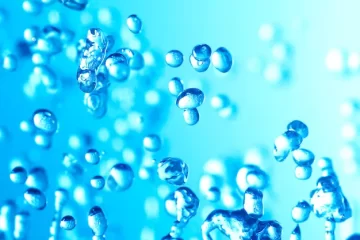Understanding Circular Chemistry: A Paradigm Shift in India’s Chemical Industry
Circular chemistry represents a transformative approach aimed at minimizing waste and maximizing resource efficiency throughout the lifecycle of chemical products. As India’s chemical industry expands, it is aligning itself with global sustainability goals by focusing on regenerative processes. These processes are grounded in designing products for recyclability, using renewable feedstocks, and adopting green manufacturing practices.
Key strategies shaping this transition include:
- Recycling and Regeneration: Transformation of post-consumer waste, such as plastics, into valuable raw materials like regenerated MMA.
- Process Optimization: Leveraging advanced technologies to reduce energy intensity and limit greenhouse gas emissions.
- Collaborative Innovation: Partnerships between researchers, policymakers, and corporations to promote scalable circular solutions.
This paradigm shift is encouraging a balance between environmental stewardship and industrial growth, positioning India as a leader in sustainable chemistry.
What is Regenerated MMA and Why Does it Matter?
Regenerated MMA (Methyl Methacrylate) refers to a sustainable innovation in material sciences involving the recycling and repurposing of acrylic polymers into high-quality, reusable MMA monomers. Unlike conventional MMA production, which relies heavily on petrochemical resources, regenerated MMA harnesses chemical recycling technologies to minimize environmental impact.
Key Features of Regenerated MMA:
- Sustainability: Diverts waste from landfills and reduces dependence on raw materials.
- High Purity: Ensures the recycled MMA matches the performance standards of virgin MMA.
- Versatile Application: Used in industries such as automotive, construction, and advertising.
This technology is crucial for industries aiming to meet global environmental regulations, lower carbon emissions, and build circular economies. Transitioning to regenerated MMA represents an essential step toward resource efficiency and environmental stewardship.
Global Trends Influencing the Adoption of Regenerated MMA
The increasing demand for sustainable and eco-friendly materials is driving global interest in regenerated methyl methacrylate (rMMA). Several international policies promoting circular economies and the reduction of plastic waste have accelerated its adoption. Companies across industries are prioritizing recycled alternatives to meet regulatory compliance and strengthen their environmental credentials. Advances in recycling technologies are enhancing the quality of rMMA, making it comparable to virgin MMA in performance.
Emerging markets in Asia-Pacific have witnessed a surge in rMMA adoption due to rising costs of raw materials and growing consumer awareness. Additionally, Europe’s stringent environmental standards have fueled investments in rMMA production facilities.
India’s Move Towards Sustainability in the Chemical Sector
India has initiated transformative policies to foster sustainability in the chemical sector, driven by economic growth and environmental challenges. The country promotes circular economy models, encouraging industries to adopt waste reduction and resource-efficient practices. Government initiatives like the Perform, Achieve, and Trade (PAT) scheme incentivize energy-efficient measures across industrial units. Efforts to integrate green chemistry principles focus on reducing hazardous waste generation.
Technology advancements, including regenerative processes for raw materials like MMA, are pivotal in this transition. Collaboration between research institutions and industries supports innovation to minimize environmental impact. Stakeholders emphasize compliance with global environmental standards, enhancing competitiveness on the international stage.
Key Drivers Behind the Transition to Circular Economy Practices
The transition to circular economy practices is driven by a combination of economic, environmental, and regulatory factors. Key drivers include:
- Resource Scarcity: Depleting natural resources necessitate innovations like regenerative processes to reduce dependency on finite inputs.
- Environmental Impact: Growing awareness of ecological degradation prompts industries to adopt sustainable models, cutting waste and emissions.
- Cost Efficiency: Circular practices lower long-term costs by minimizing raw material usage and enabling material recovery.
- Government Policies: Stricter environmental regulations encourage businesses to invest in recycling technologies and closed-loop systems.
- Consumer Demand: Increasing preference for eco-friendly products motivates companies to incorporate sustainable solutions across operations.
These factors collectively motivate industries to embrace circular systems, ensuring both profitability and sustainability.
Technological Advancements Enabling Regeneration of MMA
Technological innovations are transforming the regeneration of Methyl Methacrylate (MMA), offering both cost efficiency and sustainability. Advancements in pyrolysis techniques have enabled the breakdown of polymethyl methacrylate (PMMA) into monomers, optimizing yield while reducing energy consumption.
Catalytic methods have emerged as a critical tool, allowing for precision in separating MMA from impurities. Researchers are employing advanced chemical modeling to enhance reaction efficiency, minimizing material losses. Automation and process control systems ensure consistent quality and scalability in regeneration facilities.
Additionally, recycling systems integrated with AI-powered sorting mechanisms streamline input material, ensuring operational effectiveness. These breakthroughs collectively accelerate MMA recovery, aligning with industrial goals of sustainability and waste reduction.
Challenges Faced by India’s Chemical Industry in Implementing Circular Chemistry
India’s chemical industry encounters several hurdles in adopting circular chemistry principles.
- Lack of Technological Infrastructure: Limited access to advanced recycling and recovery technologies hampers the ability to efficiently process waste materials into reusable chemicals.
- Regulatory Barriers: Existing policies often lack a cohesive framework to promote circular practices, creating inconsistencies and delays in implementation.
- High Initial Investment: Transitioning to circular models demands significant capital, which deters industries, particularly small to medium enterprises, from adopting such practices.
- Stakeholder Awareness: Limited understanding and commitment among stakeholders prevent the widespread adoption of circular chemistry methodologies.
- Quality Control Issues: Maintaining consistent product quality from regenerated materials poses additional challenges.
Transitioning requires overcoming these obstacles while fostering collaboration between policymakers, industries, and technological innovators.
Economic and Environmental Benefits of Regenerated MMA
Regenerated methyl methacrylate (MMA) offers substantial advantages to both the economy and the environment, positioning it as a sustainable innovation.
Economic Benefits:
- Cost-Effective Production: The recycling process reduces dependency on virgin MMA, lowering raw material costs for industries.
- Energy Efficiency: Advanced regeneration methods consume less energy compared to traditional manufacturing techniques.
- Market Opportunities: Promotes domestic production, decreasing reliance on international suppliers, while opening avenues for exports.
Environmental Benefits:
- Waste Reduction: Recycling used MMA minimizes industrial waste, contributing to better waste management practices.
- Reduced Emissions: Regeneration technology mitigates carbon emissions associated with conventional production methods.
- Sustainable Resource Utilization: Encourages circular economy principles, ensuring a more sustainable use of resources.
By intertwining economic affordability with environmental responsibility, regenerated MMA becomes a cornerstone for future-focused industrial growth.
Policy and Regulatory Support for Circular Chemistry in India
India’s policy framework surrounding circular chemistry demonstrates a growing commitment to sustainable practices. Government-led initiatives, such as the National Chemical Policy, emphasize sustainability and chemical waste reduction. Regulatory bodies, including the Ministry of Environment, Forest and Climate Change, have been active in promoting Extended Producer Responsibility (EPR) and eco-friendly manufacturing processes.
Incentives for industries adopting circular methods, alongside stricter enforcement of pollution norms, are encouraged to drive compliance. Collaboration between policymakers, industry leaders, and research institutions is further pivotal to aligning with ambitious sustainability targets. Emerging reforms aim to establish clearer guidelines for advanced recycling technologies, including regenerated MMA production.
Future Opportunities: Expanding Circular Chemistry Across Industries
The adoption of regenerated methyl methacrylate (MMA) in India signals an opportunity for circular chemistry to gain traction across diverse industries. By leveraging advanced recycling technologies, sectors such as automotive, construction, and consumer goods can integrate sustainable practices into their supply chains. This could enable significant reduction in resource dependency and waste generation, fostering eco-conscious growth.
Other industries, including electronics and healthcare, are poised to benefit from circular chemistry innovations, enhancing material reusability while lowering production costs. Collaborative partnerships between manufacturers, researchers, and policymakers may further accelerate this expansion, creating pathways for India to emerge as a leading global hub in circular chemistry advancements.




